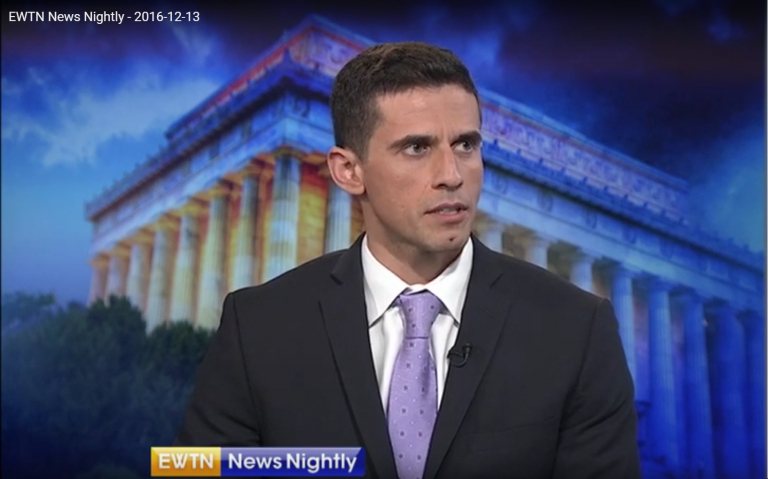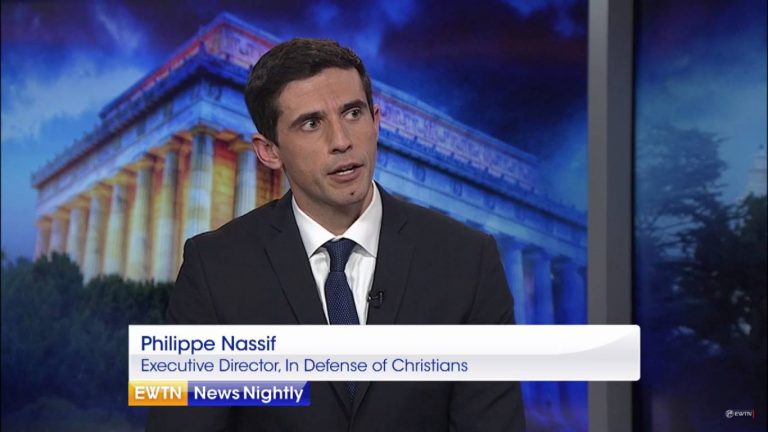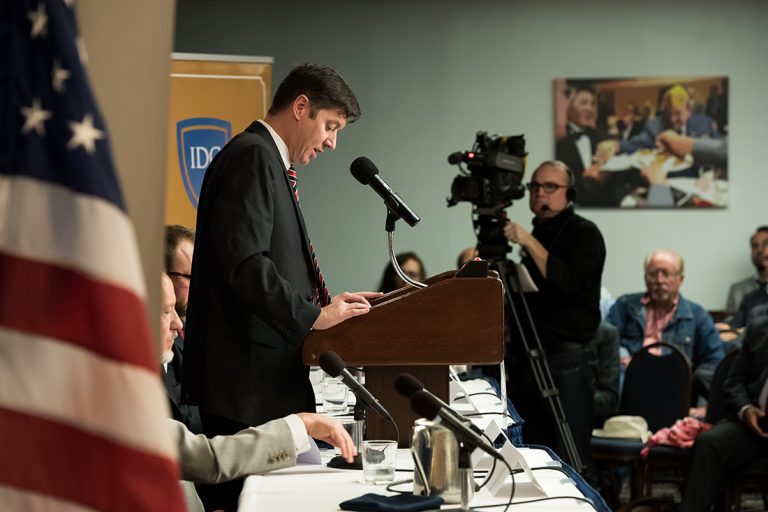Christian leaders in the Middle East oppose U.S. recognition of Jerusalem as Israel’s capital. The underlying issue is that Christians in the region side with the Palestinian cause against the Jewish state, on the whole. Exceptions exist, and one could argue that pro-Israeli Christians ought to be the majority in the churches of the Middle East, but that would be another blog post, or a book. Some American Christians, particularly Evangelicals, seem unaware that any tension exists between the Israeli flag on their wall and the Arabic letter nun — N, for Nazarene, a symbol of solidarity with persecuted Christians in Arab countries — that they wear on their lapel. Many who do see the tension look away, because they don’t know how to resolve the apparent conflict. Christians who live in the Arab world share with the Muslim majorities there a culture shot through with hostility toward Israel and Jews. In some cases the Christians may play up their opposition to Israel to inoculate themselves against Islamist wrath. Their advocates here in America sometimes stress that cultural and political context, to try to minimize the dilemma for those of us who are sympathetic to persecuted Christians but also support Israel against its enemies and detractors. When addressing American audiences, advocates for the Christians tend to maintain a polite silence on the subject of Israel. It’s an unwritten rule, apparently. Ted Cruz broke it a couple of years ago at an event sponsored by the group In Defense of Christians. He may have done so cynically, to create a drama and gin up support among Evangelicals, but the reaction of the Middle Eastern Christians who booed his praise of Israel was instructive nonetheless. Christians in the Middle East have no armies. That makes them easy to dismiss from the negotiating table. But they are also disproportionately educated and helpful to the project of cultivating liberal democratic civil society. Then again, they align themselves with forces opposed to U.S. strategic aims. We saw it in Iraq, where they backed Saddam Hussein because they found some protection under his relatively secular regime, and then we saw it in Syria, where they back Assad for parallel reasons. Last summer an Eastern Orthodox priest with roots in Lebanon and the Palestinian territories and with connections to Damascus explained to me his view of the proxy war, as he saw it, in Syria. On one side were Saudi Arabia, the United States, and Israel. On the other side, Iran, Hezbollah, and Russia. The second side happened to be good for the Christians, although they were not its focus, just as for the most part they were collateral damage, not the target, for the forces arrayed against Assad. Feel free to dispute his analysis or his understanding of who constituted the opposing camps. I sketch out his map of the conflict because it’s a window into how Christians of that region see America’s involvement in their homelands. Of course he reminded me about the religious persecutions that raged in Iraq after Saddam’s fall. If American foreign-policy conservatives are wary of Middle Eastern Christians, the wariness is mutual. Typically, advocates for the Christians skirt the issue. They practice diplomacy. But they don’t fool anyone. Maybe they would do better to acknowledge more clearly that Christians in the Middle East are not always on America’s side in regional conflicts — and that America is not always on theirs. A friend who has changed careers to dedicate himself to helping the Christians of Iraq and Syria says, “They’re like us: not perfect.” Lay such candor on those who are in a position to make or influence American foreign policy. If they conceal, from themselves or others, some distaste or prejudice that leads them to discount the humanitarian case for aiding persecuted Middle Eastern Christians, flush it out. Bring the disagreement into the daylight. Then hash it out.
Read more at: http://www.nationalreview.com/corner/454720/jerusalem-capital-israel-middle-eastern-christians-united-states-foreign-policy-trump-administration







